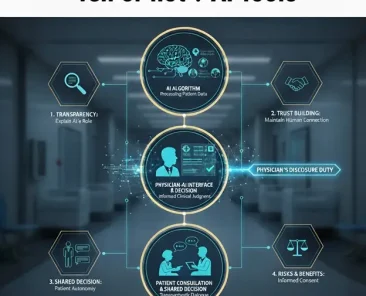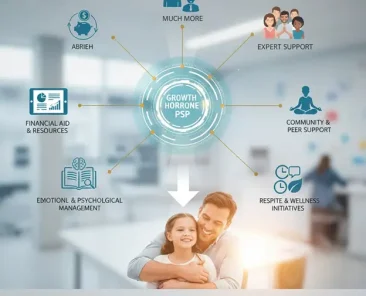When sudden illnesses or accidents lead to high medical expenses, financial stress can be overwhelming. Please don’t panic or give up treatment immediately, here are several practical and legal solutions that can help you overcome medical difficulties.
1. Communicate with the hospital immediately and seek installment payment or social welfare assistance
This is the most direct and effective way to deal with it. Many people choose to evade high medical bills, but this can lead to serious consequences, such as being collected by the hospital, claiming payment orders, or even facing enforcement such as salary garnishment or account freezing.
The correct approach is to take the initiative to contact the hospital, especially the hospital’s social work office. Hospitals are required to allocate funds to set up “medical social welfare funds” to provide medical relief in accordance with the law. Social workers will assess your family’s financial situation and provide the following assistance:
- Apply for hospital social welfare funds: Hospital social welfare funds usually give priority to economically disadvantaged families, and may receive full subsidies for self-funded projects.
- Coordinate installment payments: If the situation does not meet the eligibility criteria for social welfare subsidies, the social work office can also help you negotiate with the hospital to develop a feasible installment payment plan to reduce the pressure of one-time payments.
- Referral to government or private resources: Social workers refer you to local government Medicaid or emergency relief funds, as well as help from other private charities.
2. Make good use of social welfare and emergency relief resources
In addition to the assistance of the hospital itself, the government and the private sector also have a variety of resources to apply for:
- Government medical subsidies and emergency assistance: County and city governments usually provide medical expense subsidies for low-income households, low- and middle-income households, or families in distress for some reason. You can contact your local social affairs bureau (office) or district office.
- Private foundations: Many charitable foundations (such as the Rare Disease Foundation, Mega Charity Foundation, etc.) provide medical subsidies or emergency assistance, and the application qualifications and procedures can be found on their official websites or referred by hospital social workers.
When applying for these subsidies, you usually need to prepare household registration transcripts, original medical documents, diagnosis certificates, income certificates and other documents. It is recommended to consult the relevant units or social workers in detail to ensure that the documents are complete.
3. Use credit cards or other payment methods
If you are temporarily unable to raise cash, credit cards are also a payment option, but you need to pay attention to the following points:
- Over-the-counter card swiping: Most hospitals in Taiwan accept credit card payments at the counter.
- e-healthpay: This is a mobile payment app that integrates multiple medical institutions and banks. As long as you bind your credit or debit card in the APP, you can easily pay without queuing. Many collaborations
- Credit card payment platform for government agencies: Many public hospital payment items are also integrated into this platform, and you can use credit card payment through this platform. Consumer hospital card swiping is a fee-free service, and some credit cards even offer specific rewards or zero interest rate discounts in installments. In addition, there are “South China Bank Love Red Card / Combo Life Card”, “Antai Bank Installment Card”, “Bank of Shanghai Minion Installment Card”, “Mega Bank Payment for Medical Instructions”, etc., which can include medical expenses in 0-interest rate installments.
Reminder:
- Not all medical expenses are eligible for credit card rebates, such as medical aesthetics, health checkups, and other non-medical items.
- Some banks exclude medical expenses from general consumption, so they may not be able to accumulate dividends or cash back. Before swiping the card, it is recommended to check whether the card has relevant discounts for medical expenses.
- If you need to pay in installments, check with your credit card issuing bank if there is a relevant zero-interest installment plan.
- Medical expenses are prioritized for 0% installments, followed by rebates; If you can just determine general consumption and then superimpose the rebate, you can avoid giving up the installment for the sake of the reward.
4. Other emergency fund response methods
If you are in urgent need of capital turnover and cannot wait for subsidy review, you can consider the following legal channels:
- Microloans or Credit: If you have good credit, apply for microfinance from your bank. This type of loan has a fast review time and can be used as a short-term capital emergency.
- Relief loans: The National Health Insurance Administration provides the “Health Insurance Relief Fund” to pay the health insurance premiums and part of the burden expenses owed by the insured. This is an important channel to avoid affecting medical rights due to non-payment of health insurance premiums.
When faced with difficulties, remember to stay calm and take the initiative to seek help. Only by integrating hospital, government, and private resources, and making good use of diverse payment tools, can we successfully solve the problem of medical expenses. Currently, for many self-funded drugs, pharmaceutical companies will also provide PAP patient medication support projects, through the assistance of doctors to join the project, reduce part of the treatment drug costs + then share cash flow through financial instruments: PAP first subsidizes self-funded drugs or testing costs, and then distributes the remaining out-of-pocket expenses through zero-interest rate installments, minimizing current cash expenses and reducing the financial toxicity of patients’ self-paid drugs.
Links to specific application information articles
2. Social Service and Medical Assistance Fund for Medical Institutions
3. List of emergency relief resources of private units
4. Citizen medical subsidies (Taipei City as an example) Almost all counties and cities have similar medical subsidies




